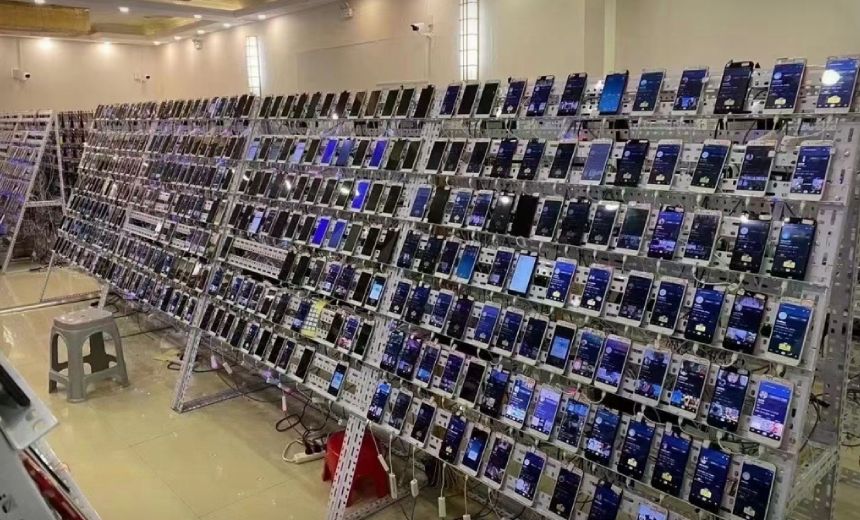Cybercrime
,
Fraud Management & Cybercrime
,
Social Engineering
Prince Holding Group CEO Chen Zhi Indicted, Sanctioned

A Cambodian multinational conglomerate with ties to the country’s ruling elite is actually a transnational criminal group raking in tens of millions per day from online scams perpetuated by forced labor held in compounds, say federal prosecutors.
See Also: OnDemand | North Korea’s Secret IT Army and How to Combat It
The U.S. Department of Justice indicted Chen Zhi, aka “Vincent,” chairman and founder of the Prince Holding Group in legal proceedings unsealed Tuesday. Zhi has not been arrested but would face more than four decades in prison if convicted on charges of wire fraud conspiracy and money laundering conspiracy.
Prosecutors say Chen, 38, has directly overseen since 2015 the operation of at least 10 scam compounds throughout Cambodia where trafficked laborers lure victims into fraudulent cryptocurrency scams. A mix of coercion and frequent violence keeps the scammers at work at the “phone farm” compounds.
A co-conspirator at one point said the operation earned more than $30 million a day from digital cons known as romance scams and “pig butchering,” after their name in Chinese, “sha zhu pan.”
The U.S. Department of Treasury and its British counterpart additionally announced coordinated sanctions in a bid to cut off Chen, the Prince Group, more than 100 related corporations and front companies and a dozen of its executives from the Western financial system.
Federal prosecutors moved to seize approximately $15 billion worth of cryptocurrency once controlled by Chen, digital assets obtained directly from fraud and through large-scale bitcoin mining operations in Laos, Texas and China. The cryptocurrency is already in custody, prosecutors told a judge in the U.S. District for the Eastern District of New York.
The alleged organized crime leader took steps to hide the cryptocurrency’s provenance through techniques that included “spraying” and “funneling” that involve dispersing cryptocurrency through multiple transactions until it can be reconsolidated.
Treasury officials say the Prince Group has maintained a web of offshore hubs and shell companies throughout South Asia, including in Singapore, Hong Kong, the British Virgin Islands and the Cayman Islands to funnel illicit revenue. The criminal organization comingled funds with its ostensible legal operations, including hotels, casinos and online gambling, and a bottled water company in Palau called Aqua Pure Water. Chen registered his luxury yacht in Singapore, according to Treasury.
The Prince Group has denied past accusations of criminality, touting itself on its website as “building a better life.”
Transnational crime operating from Cambodia has converted the country into a locus for industrial-scale fraud, human trafficking and violent abuse, the U.S. Institute for Peace found in May 2024. Chinese criminal gangs have embedded themselves with the country’s ruling political organization, the Cambodian People’s Party, despite a supposed crackdown in 2022, the institute said. The party’s power depends on economic growth and dispensing patronage, making a home base for criminal enterprises “one of the few available options” for steady revenue inflow.
Cambodian press in February 2024 reported that the Radisson Hotel Group signed an agreement with the Prince Real Estate Group to develop two new luxury hotels in Phnom Penh. Radisson did not immediately respond to a request for comment.
“We must keep an eye on them and not let them run away,” Chen once said of his workers, prosecutors said. He told an associate that one worker at a compound should be beaten, but not “beaten to death.”
Originally a Chinese national, Chen became a Cambodian citizen and an advisor to heavyweight Cambodian politician Hun Sen and his son. He gave up Chinese citizenship. The U.S. Institute of Peace in said Chen was implicated in at least 83 criminal cases heard in courts spread across nine Chinese provinces.
The scams Chen and the Prince Group are accused of begin with a cold contact through instant messaging or over social media using scripted prompts pretending to have contacted a wrong number. Victims who continue chatting can be roped into a false relationship that culminates with the perpetuators inducing victims into making an investment or sending money to cover an emergency. Once perpetuators determine there’s no more money to be stolen, they cut off contact.
Among the group’s frozen properties are a 12 million pound mansion in North London and a 100 million pound office building in London.
The criminal operation didn’t rely solely on forced labor, according to prosecutors who say they spotted a Brooklyn-based network of fraudsters who collaborated with workers in a Sihanoukville, Cambodia compound located at the Jinbei Hotel and Casino. Brooklyn fraudsters made first contact with victims and claimed to have made money through cryptocurrency and foreign exchange markets. They passed on prospective victims to the Jinbei compound, where Prince Group “account managers” handled the nitty gritty of routing money. Prosecutors said the Brooklyn network facilitated the theft of millions of dollars from more than 250 victims across the United States.
